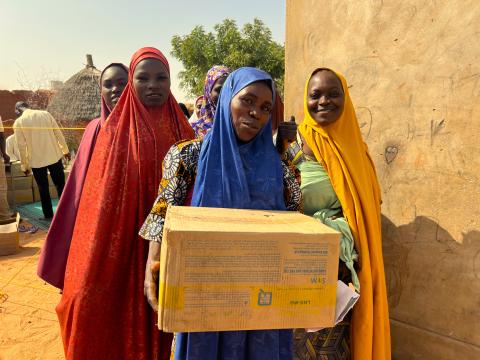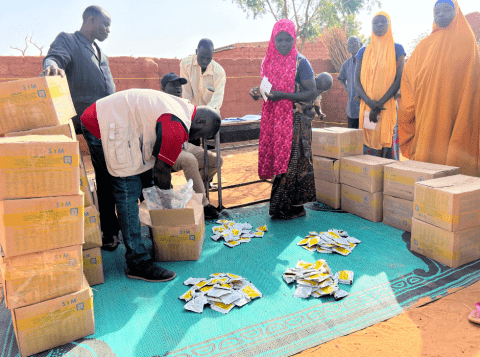Fighting Malnutrition: Nutritional Support for Children in Maradi
by Garba Mamoudou, Communication officer, World Vision Niger
The Maradi region of Niger is facing imported nutritional challenges, particularly among children, which have been imported from elsewhere.
According to the UN Office for the Coordination of Humanitarian Affairs (OCHA), the region has global acute malnutrition (GAM) and severe acute malnutrition (SAM) rates of 12.9% and 2.3%, respectively, among children aged 6 to 59 months. Only 8.7% of children aged six to 23 months consume a sufficiently varied diet for proper growth. This means that most children are not receiving the necessary nutrients for healthy development.
There are several factors that contribute to malnutrition in the region, including food insecurity, poor feeding practices, frequent illnesses and limited access to healthcare. As one of the women explained:
- "Bad harvests caused by drought make it difficult to feed our children properly. Sometimes there isn't enough food for the whole family”, said Saoudé, a mother of four.
- "Healthcare is scarce. When children fall ill, it is almost impossible to find medicine or a doctor. This worsens their nutritional status, especially when they have diarrhoea or malaria”, said Nafissa.
- "Low income forces us to rely on simple meals that lack essential nutrients for our children", said Sarahtou, a mother of five.
In response to ongoing challenges claiming more lives, World Vision Niger has partnered with the World Food Programme (WFP) to launch the 'Maradi Integrated Resilience Project'. This initiative has increased community resilience by implementing activities to improve children's nutrition, among other things. Nutritional supplements are therefore distributed monthly.
"During the January 2025 distribution, over 5,000 metric tons of the nutritional supplement Plumpy'Sup were given to over 3,000 children aged 6–23 months in the three communes where the project operates. This monthly ration protects children from malnutrition in vulnerable beneficiary households participating in Food for Asset activities, and is given in conjunction with conditional cash payments," explains Hamadou Diaouga, the nutrition coordinator.

Distributing the nutritional supplement Plumpy'Sup has had several positive impacts, such as reducing moderate acute malnutrition, improving children's health and development, supporting vulnerable households, and increasing recovery rates from moderate acute malnutrition.
"My son was very weak and often ill. We didn't have enough food to provide him with a balanced diet. Nutrition programmes provided us with the support we needed to keep our children healthy. Thanks to this support, my son was able to regain his strength and health. He started to put on weight and develop properly. It changed our lives. 'I am so grateful for this help,"says Sarahtou.
Saoudé explains how difficult the situation with her children was before World Vision Niger's initiative: "They lacked energy and could not play like other children. The nutritional supplements they received made a huge difference. Now they are more active and healthier.”

These testimonies demonstrate the positive effects of nutritional interventions on the health and well-being of children and their families. These combined effects strengthen communities' resilience to malnutrition and promote healthy child development.